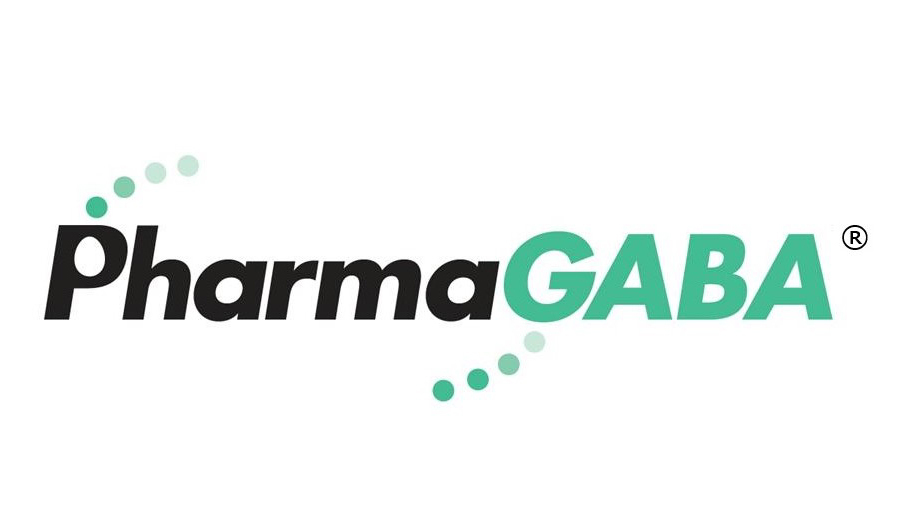Promotional Features
A wake-up call for sleep: A clinically proven ingredient that promotes sleep, supporting cognitive health
Sleep is not a luxury – it’s essential for human health and vitality.
In his international best-seller Why We Sleep, professor of neuroscience and psychology Matthew Walker describes sleep as “a non-negotiable biological necessity”. Many vital functions, including those that benefit our cognition, occur in the body during sleep that cannot happen during our waking hours.
However, today’s on-the-go lifestyle is taking its toll on sleep; globally, we are sleeping less and experiencing more disturbed sleep when we do manage to drop off. One of the key factors contributing to lack of sleep or disturbed sleep is stress. In today’s world, we’re always on-call, operating at full speed to juggle home and work lives 24/7. The stress of daily life can be all consuming, making it hard to unwind and switch off.
And it’s a vicious cycle. Sleep deprivation causes us to feel more stressed. Little wonder that every morning around the world, approximately four billion people wake up feeling tired.1 Modern life is creating a global ‘sleep-loss epidemic’, suggest the findings from an in-depth study by the World Health Organization (WHO) and Sage, and this is impacting our physical and mental health on a devastating scale.2
Sleep deprivation can also be caused by an extended sleep latency – the time it takes a person to fall asleep after turning the lights out.
“Mean sleep latency in normal adults is between 10 and 20 minutes,” explains Dr. Aditya Kulkarni, Associate Director of Global Business at Pharma Foods International Co. Ltd, Japan. “Reducing this by just five minutes can have significant potential to improve our overall sleep – both its efficiency and quality.”
A cumulative lack of sleep causes damage to brain neurons, resulting in diminished cognitive health that can worsen over the course of a lifetime. This impacts cognitive and physiological functions in the human body, leading to a range of severe health issues – among them, a reduced response time leading to accidents and errors, higher blood pressure, and anxiety and depression. In the US alone, up to 70 million people suffer with sleep disorders that risk their cognitive health.3
Cortisol is an essential hormone for regulating our response to stress and controlling our sleep/wake cycles. Under normal conditions, the body’s adrenal glands fine-tune the amount of cortisol they release, but if cortisol levels become unbalanced – during times of stress, for example – this can have a significant impact on our sleep cycles.
“Having the right cortisol balance is essential for your health,” says Dr. Aditya Kulkarni. “But when you are stressed, increased levels of cortisol are released into your bloodstream.”
A 2018 study found that mean levels of cortisol were found to increase approximately nine times in stressful periods.4 It’s clear that we need a new approach to moderating our time and attention and keeping stress at bay. Most of us want to – worldwide, 80% of people want to improve their sleep.1 But how?
The importance of GABA
Gamma-aminobutyric acid – or GABA – is an amino acid created in the body that acts as an inhibitory neurotransmitter in the brain. Its activity can be affected by neurological conditions, such as stress. GABA is known to inhibit excitement in the nervous system by blocking chemical messages, thereby providing a calming effect which takes the body from ‘fight-or-flight’ into ‘rest-and-digest’ mode. As a result, it can play a crucial part in alleviating or preventing symptoms of stress and anxiety, increasing our ability to relax – and sleep.
The body naturally produces GABA from glutamate. GABA also exists naturally in foods, such as green and black teas and fermented foods such as kimchi or miso. Nutrient-rich fruit and vegetables such as tomatoes, cabbage, broccoli and cauliflower, can also help to complement the body’s production of GABA.
A clinically tested natural form of GABA
Oral administration of GABA in supplements and functional food products has been shown to affect brain functions by mimicking the beneficial effects of GABA produced in the body.
PharmaGABA® is a natural form of GABA produced with the help of Lactobacillus hilgardii – a beneficial lactic acid bacteria found in kimchi, the traditional Korean vegetable dish.
Studies have found that PharmaGABA® plays a critical role in suppressing cortisol levels. This in turn reduces stress and anxiety, promoting feelings of relaxation and calmness and improving sleep quality, as well as improving cognitive health and mental alertness.
In a clinical study investigating the effects on cognitive function, PharmaGABA® was found to be the first ingredient of its kind to demonstrate an improvement in logical thinking (Figure 1). In addition, PharmaGABA® was also shown to enhance working and long-term memory, sustained attention and visuospatial/construction ability in a dose-dependent manner.5,6
Figure 1
“What sets PharmaGABA® apart, and makes it peerless as a remedy for sleep deprivation, is that it is not a drug,” says Dr. Aditya Kulkarni. “It is free from all the implications of side-effects and after-effects, and free from potential risk of addiction that certain drugs carry.”
Another study carried out on 30 healthy males found that intake of GABA-containing beverages may help reduce both psychological and physical fatigue and improve task-solving ability.7 In the study, subjects were administered 250 ml of a test beverage containing GABA at the dose of 0 mg (control), 25 mg and 50 mg before being assigned an arithmetic task.
Psychological fatigue assessed by the Visual Analogue Scale (VAS) was significantly lower in the group administrated the beverage containing 50 mg GABA than in the control group (p<0.05). The results of the Profile of Mood States (POMS) also indicated that psychological and physical fatigue was significantly reduced in the 50 mg-GABA group and the task-solving ability was improved.
Another randomized, single-blind, placebo-controlled crossover designed study evaluated the effect of GABA on sleep by electroencephalography (EEG) after oral GABA administration.8 GABA was found to significantly shorten sleep latency. “Reducing sleep latency by as little as five minutes can have a significant impact to improve our overall sleep efficiency and quality,” explains Dr. Aditya Kulkarni. “Our study showed that oral administration of GABA shortened sleep latency by half, from ten minutes to five minutes.”
Figure 2
In addition, the level of GABA in the blood after administration was investigated, and the absorption and metabolism rates of GABA were determined. It was found that GABA was quickly absorbed and the level of GABA in the blood was the highest 30 minutes after oral administration, with a subsequent decrease in concentration. Therefore, for the optimal benefits taking PharmaGABA® supplement 30 minutes to one hour before going to bed can be recommended.
Another study claimed to be the first to report that exosomes secreted from GABA-activated intestinal cells activate neuronal cells.9 This is significant because the blood-brain barrier is impermeable to GABA, so the study hypothesized that the gut-brain interaction might be stimulated by some secretory factors derived from the gut.
Its results suggested that secretory factors derived from GABA-treated intestinal cells (Caco-2) activated neuronal cells (SH-SY5Y). Further investigation revealed that exosomes derived from GABA-treated Caco-2 cells were responsible for activating the SH-SY5Y cells.
Figure 3 (below) illustrates the results of a questionnaire on a Visual Analogue Scale (VAS) in which participants were asked to pinpoint their answers on a scale between minus 50 mm and plus 50 mm on a 100 mm line, with 0 mm representing no-change. The results showed improvements across all three areas (time to fall asleep; the feeling when waking up; and sleep satisfaction) in participants who had taken oral consumption of PharmaGABA®, indicating positive benefits of PharmaGABA® in improving overall sleep quality.
Figure 3
PharmaGABA® is readily soluble in water and stable at high temperature and a wide range of pH, making it suitable for applications including capsules, tablets and sachets to powders, beverages and gummies. Furthermore, it has no color and taste of its own and therefore can be easily used in any product formulation.
Our hectic lifestyles look set to stay and the need to improve our sleep quality is essential. Tapping into the potential of this breakthrough ingredient could be the wake-up call that sleep has been crying out for.
Learn more about PharmaGABA®.
References
1. Philips Global Sleep Survey, March 2019.
2. Stranges S.; Tigbe W.; Gómez-Olivé FX.; et al. Sleep problems: an emerging global epidemic? Findings from the INDEPTH WHO-SAGE study among more than 40,000 older adults from 8 countries across Africa and Asia. Sleep, Volume 35, Issue 8, August 2012, Pages 1173–1181.
3. What Are Sleep Disorders? American Brain Foundation.
4. Cay M.; Ucar C.; Senol D.; et al. Effect of increase in cortisol level due to stress in healthy young individuals on dynamic and static balance scores. North Clin Istanb. 2018 May 29; 5(4):295-301.
5. Yamatsu A.; Nakamura U.; et al. Improvement of Memory and Spatial Cognitive Function by Continuous Ingestion of 100mg/day of gamma-Aminobutyric Acid (GABA) - A Randomized, Double-blind, Placebo-controlled Parallel-group Clinical Trial. Jpn Pharmacol Ther, 2020, 48(3), 475-86.
6. Yamatsu A.; Nakamura U.; et al. Intake of 200 mg/day of gamma-Aminobutyric acid (GABA) improves a wide range of cognitive functions - A randomized, double-blind, placebo-controlled parallel-group clinical trial. Jpn Pharmacol Ther, 2020, 48(3), 461-74.
7. Kanehira T.; Nakamura Y.; Nakamura K.; et al. Relieving occupational fatigue by consumption of a beverage containing γ-amino butyric acid. J Nutr Sci Vitaminol (Tokyo). 2011;57(1):9-15.
8. Yamatsu A.; Yamashita Y.; Pandharipande T.; et al. Effect of Oral γ-aminobutyric Acid (GABA) Administration on Sleep and its Absorption in Humans. Food Sci Biotechnol. 2016 April; 25(2):547-551.
9. Inotsuka R.; Uchimura K.; Yamatsu A.; et al. γ-Aminobutyric acid (GABA) activates neuronal cells by inducing the secretion of exosomes from intestinal cells. Food & Function, 2020, 11, 9285-9290.




